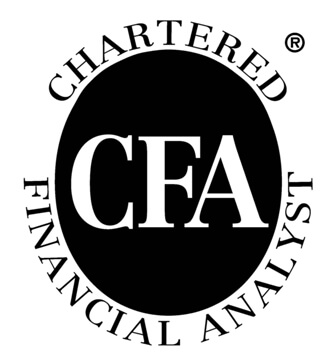CFA: An Investment Which Pays the Best Interest

Img source: CFA Institute
The finance industry is multifaceted, offering a variety of positions catering to a number of different skills and interests. Financial services have multiple sub-industries encompassing niche opportunities. The world is driven by economy and finance and is anticipated to be the highest job provider in near future other than IT sector. But the question is that which course one would select that will make an individual dive deep into this sector and will give good understanding of the finance industry and economy. There are several options but if we narrow down the options within the finance field CFA (Chartered Financial Analyst) will occupy the top position. This course is mainly suitable for candidates who have opted for commerce or science in the intermediate level. As CFA course provides concepts of advanced statistics, mathematics and financial accounting hence commerce or science graduate will easily cope up with the content of the course and will be able to absorb it comfortably.
CFA – A Brief Overview
The CFA designation is regarded to be the key certification for investment professionals, especially in the areas of research and portfolio management. Investment analysis is key to any sound financial management strategy of an organization and CFA gives the best understanding in this area of finance. Due to this CFA is gaining importance in modern financial industry. Before the advent of the CFA, the MBA was the requirement for the investment industry, the specialized curriculum provided by the CFA has changed that. Now, most companies involved in making or managing investments insist on having the CFA for senior positions, and in some cases requiring that employees in senior position have both academic achievements. There are many benefits to the CFA, but the main reason anyone goes through the program is to get paid more. Various surveys indicate that CFA charter holders get paid more than non-charter holders. Given the relatively small investment required for the CFA program.
The Various Stages of Becoming a CFA
The course is comprehensively structured into three distinct levels. Level I test the knowledge of professional standards. Level II tests how you align those standards to practical situations and level III tests how you apply the standards in a portfolio management and compliance context. One has to clear all the three levels and gather four years of qualified work experience in investment decision making to attend the Chartered designation. Since the Institute does not publish an actual passing score, the only thing to remember is that no candidate has ever failed with a score of 70% or higher and hence the target marks for every candidate should be at least 70%. The exams for Levels I, II, and III are offered annually, in June. The Level I exam is also offered again in December.
Skills Required by a CFA
The exam pattern of CFA is very rigorous and so it is not only a test of one’s intellect but also of endurance, diligence, and creativity. Making a sincere and internalized commitment to completing the program is a prerequisite for success. In order to pass, CFA students need to develop specific exam strategy along with the study plan. Students can go for multiple previous questions papers and sample exam to get an idea of the kind of exam being conducted. For example, a three-hour exam with 120 possible points means one for each minute and a half. So to attend every question correctly and within time, one requires huge practice at regular intervals during the course of study. Many students go for self-study and successfully complete it but it is undoubtedly the most difficult approach. But the candidates who are not confident to adopt this methodology have other different options too. There is an abundance of study materials provided by the CFA Institute and third-party vendors on a variety of subjects. Moreover, there are many study-course options too available, from weekly classroom programs to short-term immersion courses. These are good options to seek help for clearing the course.
Job Prospects for a CFA
After clearing CFA almost every candidate gets excellent placement offers globally. The sectors with the highest proportion of CFA qualified employees are Assets Management Companies, Equities, Fixes Income, Research, Hedge Fund, M&A, Capital Markets, Private Banking, Risk Management, Accounting, and Finance etc. Earning the chartered financial analyst (CFA) designation can move your resume to the top of the pile in extremely competitive fields, including portfolio management, investment banking, business development, and corporate mergers and acquisitions. Hence moving ahead with a career as a CFA can associate you with top financial companies globally and may help you occupy a higher managerial position in any organization removing stagnation in your career growth.
[supsystic-social-sharing id="1"]
